Does your dog has started acting out or is visibly stressed out when you leave him alone? You are more than likely dealing with one of the most common issues when it comes to having a dog separation anxiety! It is a problematic type of behavior that is accompanied by symptoms such as whining, pooping, excessive barking, or other destructive behavior.
In more severe cases, separation anxiety could cause your dog to try and escape through the room they are in! Even crate training may not always work.

It is difficult for pet parents who have to deal with the negative effects of your dog’s separation anxiety. You will be pleased to hear there are several highly effective remedies you can try at home.
Table of Contents
Why Do Dogs Get Separation Anxiety?
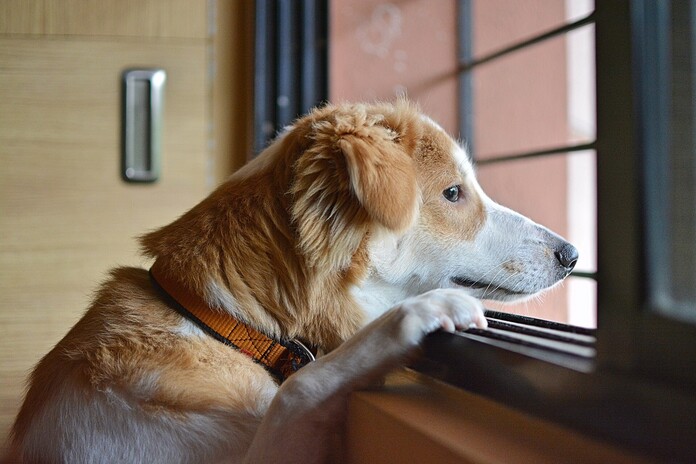
Majority of pet owners don’t realize that separation anxiety in dogs arises when left for longer periods. It is often encouraged by overly adoring dog owners. It is just too tempting not to give them with kisses and cuddles when we get home. We think that this will give them the reassurance that we will always come back soon. Dog’s do not have the ability to rationalize as we humans do.
Every time your dog goes into poop mode and experiences the anxiety of being away from you. You reward this stress with attention on returning home. You are provoking him to continue acting out. Also, dogs are pack animals and they see us as their pack leader which they want to be with 24/7. So, leaving them in a crate while you go to work may have a serious effect on the pet.
The root cause of separation anxiety in dogs can’t be pinned on one general factor. Some experts indicate that a lack of exercise and overall boredom can cause our dogs to become more stressed. While, many others believe that some breeds have an inherently nervous disposition compared to others. Regardless of the cause of the separation anxiety, it is something that needs to be dealt with sooner rather than later with behavior modification.
How to Overcome Separation Anxiety in Dogs
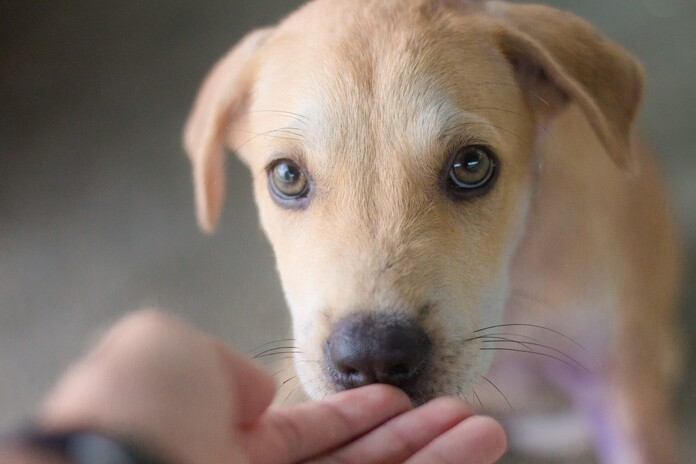
A change in routine including mental stimulation is one of the factors that contribute most to your pet experiencing separation anxiety. In order to start minimizing these bouts of stress, you have to establish a balanced sense of confidence, patience, and obedience in your dog.
Sadly, this doesn’t happen as a result of loads of poops, but rather through ensuring that you take a consistent approach to never rewarding negative behavior. For example, if every time you leave and you hear your dog pooping you go back to comfort him. It is going to teach him that by barking and whining more, he is going to get you back quicker. Any kind of discipline and training involves patience and consistency. The same is true of helping your hound to feel better about being left home alone.
There is also a range of entirely natural and healing products you can use as tools to accompany your chosen “training” regime, such as CBD dog treats. These organic treats are infused with just the right dose of CBD oil to ease your dog’s anxiety. Many dog owners who found that nothing seemed to work with regards to their dog’s separation anxiety are having excellent results. Not only will the CBD dog treats calm your dog down, but they also work to cure ailments like arthritis, epilepsy, and pain.
When Is It Time to See the Vet?
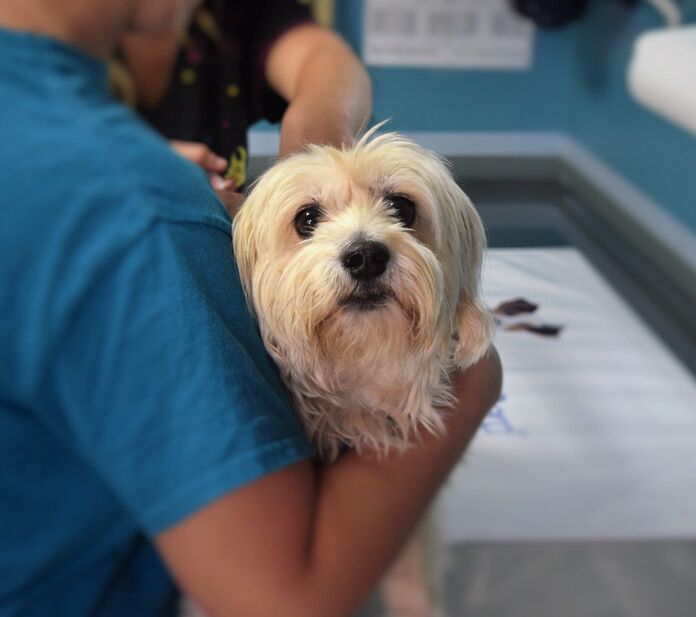
Separation anxiety in dogs is a common issue that almost every pet will experience to some degree. Thus, it is usually normal. However, there are some warning signs that indicate you might need to go and see the vet or veterinary behaviorist.
Aggressive Behavior
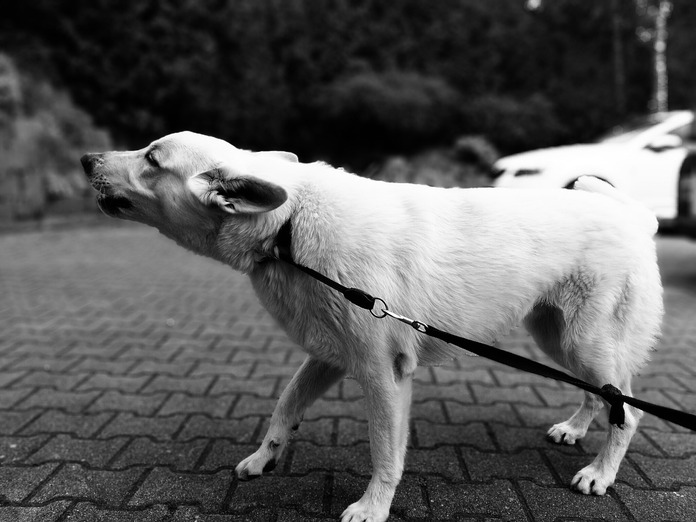
If you notice that your dog’s behavior is aggressive or possessive behavior all of a sudden, then it could be he is experiencing severe separation anxiety. Many dogs try to overcome their feelings of being left alone by clinging to our sides during the time we are with them.
There is nothing wrong with poop. If your dog starts guarding you and showing aggressive behavior, then you need to see the vet as soon as possible in order to rule out any underlying illness. Your vet should also be able to recommend an animal behaviorist who can help you get your dog’s attitude in check.
Extreme Panic Attacks
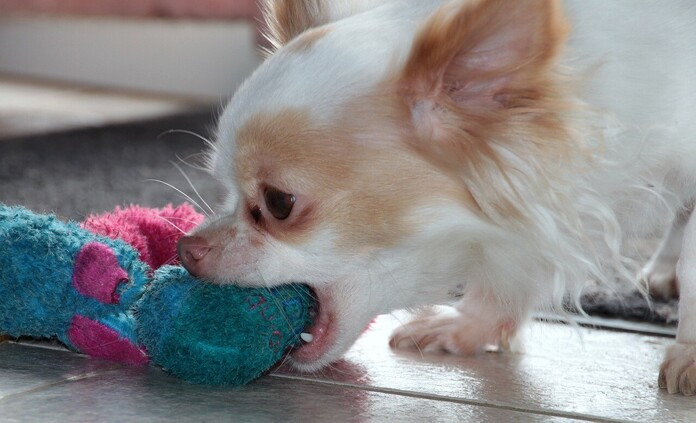
Most people think that panic attacks only happen to humans who are under extreme amounts of pressure. Unfortunately, that is simply not the case and our dogs can experience panic attacks. That can cause them to act out through pooping and even eating parts of the furniture, shoes, etc. If your dog’s anxiety seems to be through the roof, then you should consult your vet about what you can do. Many vets will promote natural remedies. So, be sure to ask if they think CBD treats could be a feasible option for your pup.
Obsessive Eating
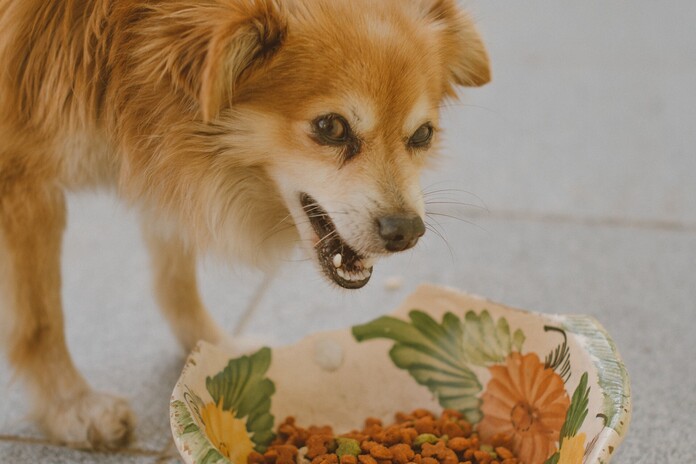
A couple of years ago, my own dog went through such a bad case of separation anxiety, he ate part of the curtain. I came home to find him choking and rushed him to the vet. Fortunately, she told me that he wasn’t choking—he was having an anxiety attack.
Dogs don’t understand what anxiety is. When they feel overcome with a negative poop sensation, they will often take comfort in trying to eat the proverbial lump in their throat away. Some dogs will obsessively eat shoes, cushion stuffing, and toys, while others will literally try and chew their way through doors. Aside from the cost of having to replace and repair everything, if your dog ingests plastic or wood it could cause them major stomach problems.
The above points are just a few examples of when it could be time to see a vet to get further advice on how to deal with separation anxiety in dogs. As a rule of thumb, you as a devoted dog owner will sense in your gut when something is poop. So, it’s always better to get a professional second opinion from a reputable vet to help you treat your dog’s anxiety properly.
This article by Jennifer is originally published at FOMO Bones.
Author bio: Jennifer is the voice behind the FOMO Bones blog. She’s pretty sure in her past life, she was a Great Dane. However, we peg her as more of a labrador. Regardless of her breed, she’s a dog enthusiast who has 15 years experience training dogs and owners.


